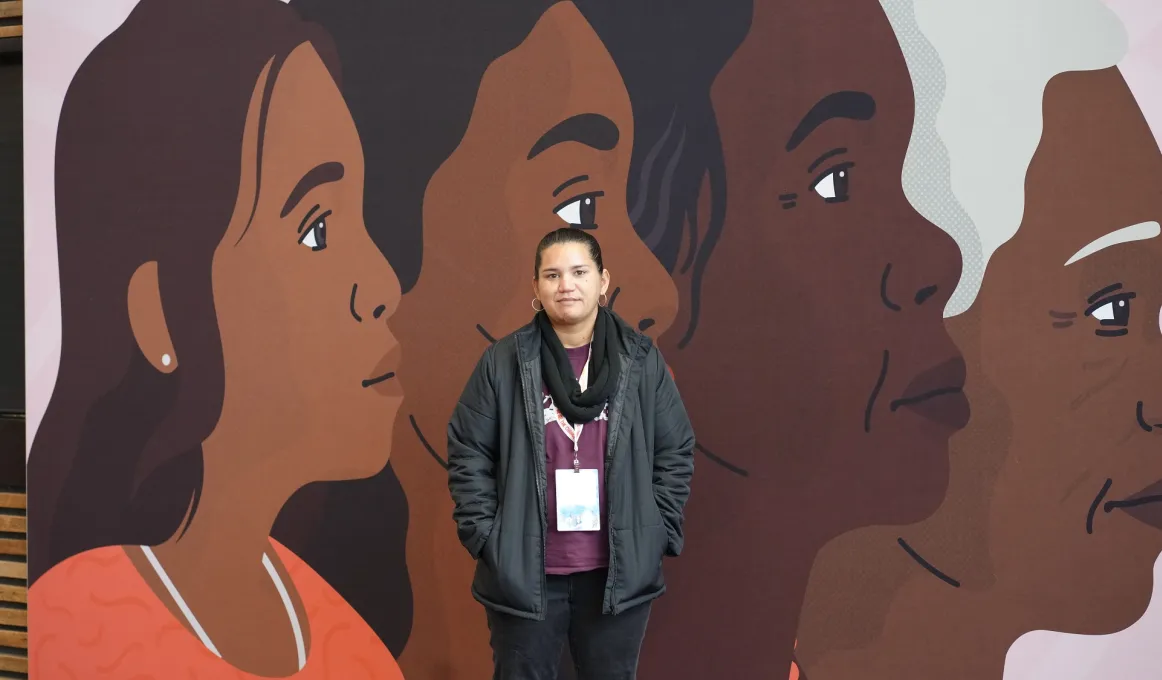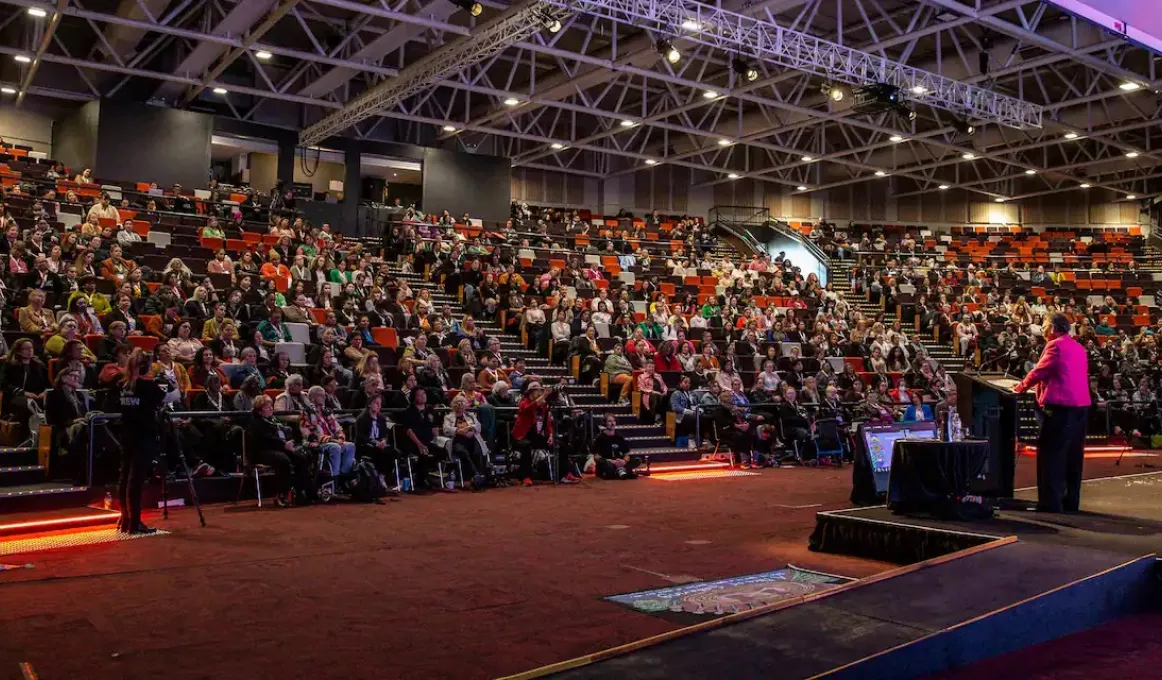Wiyi Yani U Thangani Summit makes change with women's voices


In a landmark conference, more than 900 Aboriginal and Torres Strait Islander women gathered on Ngunnawal and Ngambri Country in Canberra last week at the Wiyi Yani U Thangani Summit.
Women came from all over Australia to talk about the issues that matter to them and their communities in an action-based, solution focused forum that honours women’s experiences and the knowledge of sistas, aunties and nannies.
There was a sense of camaraderie and shared purpose in the air.
Baad and Gija woman Kerissa O’Meara attended the summit from Derby a remote town in the Kimberley region of Western Australia.
‘900 Aboriginal women in one place!’ she laughed. ‘It’s amazing.’
Kerissa sees herself as part of the next generation of leadership, and believes to lead well you need to be open to everyone’s experiences.
‘I’m not an Elder and I’m not a youth, I’m in the middle. Us mob in the middle, we look up, we have to talk to our Elders, at the same time we have to look down and take care of our youth. We need to be strong; we need to guide and be guided, we need to lead and be led.’
The summit was designed to help set an agenda for change in the rights, health, safety, wellbeing and prosperity of First Nations women.
‘Going into these sessions and listening to our young people and our Elders, listening to them talk about health, politics, there’s a lot of way we can network and help each other’ Kerissa said.
She is returning home eager to share what she has learned at the Summit, with a feeling of empowerment and connection to other First Nations women.
‘You listen and you know that we have shared experiences, you think “Oh other people have felt that!” and it makes such a big difference.’
The Summit offered six streams each day: Leadership and decision-making for self-determination; Language, land, water, and cultural rights; Societal healing and intergenerational wellbeing; Economic justice and empowerment; Claiming your place; Creative space to engage with cultural workshops.
Every session had First Nations women presenting.
‘Listening to those women talk about leadership and what they did in their towns. What they’ve accomplished is amazing, this is what we need to help our people, to inspire our women. We are the backbone of our people, of our families. We have to have self-care; we have to empower ourselves.’
Kerissa works in the Derby community in women’s suicide prevention, supporting and advocating for women and kids.
‘Derby is out of the way, up the Great Northern Highway, there are a lot of communities that don’t have access to services or support.’
‘I’m gonna go back to my town and tell them how wonderful it is, telling them how we can make a change. I am going to walk away from this feeling very empowered, going to take that back to my community and make a difference, whatever difference that is, small or big, I’m gonna do it.’
At the end of the summit delegates released a “blakprint” for systemic and structural reform, starting with the development of a national Framework for Action and an Institute for First Nations Gender Justice and Equality to both be launched on International Women’s Day, 8 March 2024.
Find out more
The Australian Government, through the National Indigenous Australian’s Agency (NIAA), is proud to be supporting the Aboriginal and Torres Strait Islander Social Justice Commissioner, Ms June Oscar AO, and her team at the Australian Human Rights Commission (AHRC) to deliver Stages One, Two and Three of the Wiyi Yani U Thangani (Women’s Voices) Project.
The Australian Government recognises the critical elevation of First Nations women and girls’ voices to the national level through the calls for action, pathways forward, and overarching recommendations that the Project has identified. This work complements the Government’s broader commitment to implement the Uluru Statement from the Heart in full and to ensure First Nations voices are heard.
The voices and aspirations of women and girls, which the report reflects, are informing policy direction for all portfolios, at all levels of government, to address drivers of social and economic security for First Nations women and girls. In particular, the guiding principles of a place-based approach, understanding intersectional discrimination, and embedding culture and respect for First Nations peoples’ identities that underpin the Wiyi Yani U Thangani (Women’s Voices) Report continue to be implemented across the Australian Government, as demonstrated in the Commonwealth’s Closing the Gap Implementation Plan.